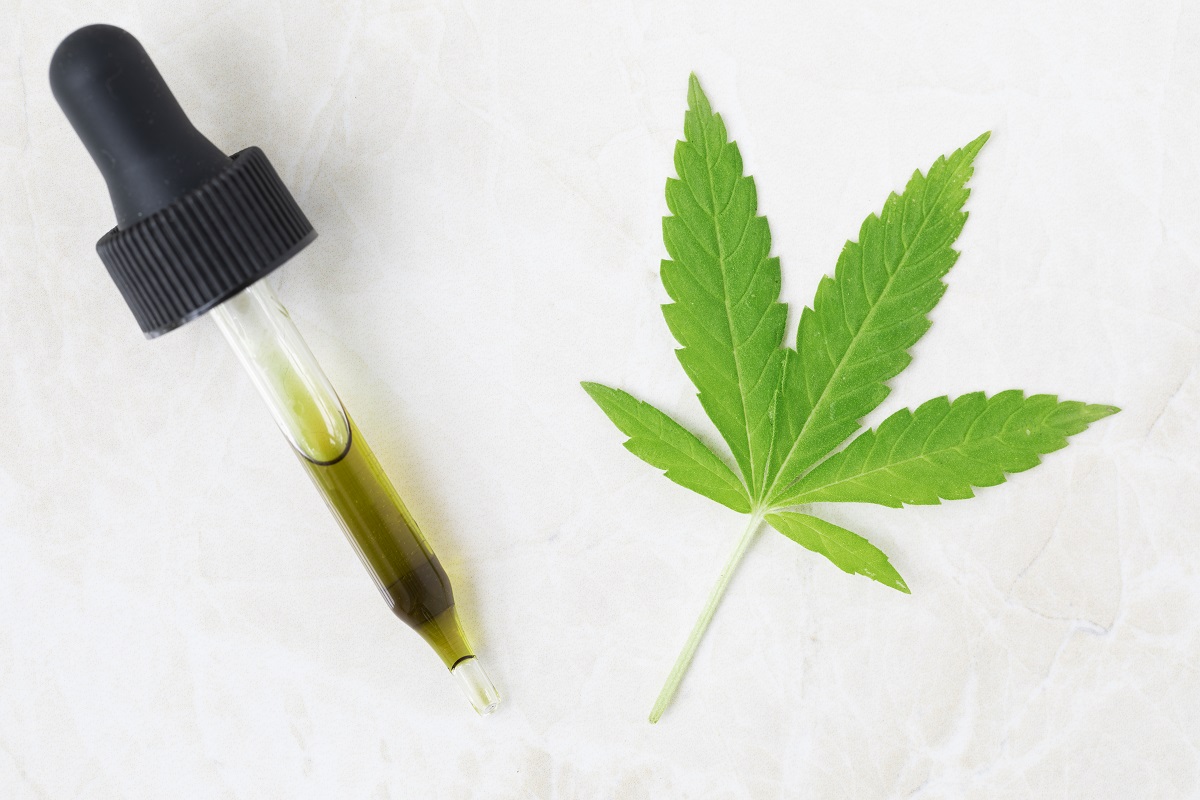
That moment when something stressful happens and your stomach feels like a fiery pit of molten hot lava. With a side-order of too many coffees to get you through a hard day. If that sounds familiar and you experience frequent stomach upset, balancing your digestive tract is a necessity.
When you talk about diet and nutrition, many people think it is just about the number of calories, fats, vitamins, and minerals you consume. That’s part of it for sure. But what is most important is understanding how to balance your gastrointestinal tract and gut health because more than 70% of your immune system functioning starts in your digestive system.
By now, you probably know that all the different systems within your body are interconnected. When one thing isn’t working the right way, other symptoms or conditions may start to develop. It is like a nice car that has a damaged component in the engine.
You may not see it. You may not feel it (right away), but eventually, you will have a performance issue. Because when everything isn’t working correctly, something is apt to breakdown and stop working the way that it used to. The human body is the most sophisticated technology on the planet, and like a mechanical engine, everything is interconnected.
Behind many chronic diseases is a hidden threat, inflammation. That, too, is triggered by a high-stress environment or experience. Many patients feel improvement after using CBD oil or tinctures or consuming non-intoxicating CBD edibles. And for some health conditions, CBD may be a safer alternative therapy.
Are you feeling stressed out? Sometimes we don’t even know that we are experiencing stress until noticing the physiological signs. That could be indigestion. It could include passive symptoms like dry mouth or more noticeable side-effects like heart palpitations and perspiration.
All of the symptoms you notice when you are stressed, have to do with many different sensory systems in your body, from the central nervous system that sends and receives signals to two cannabinoid systems. Silently (and sometimes not-so-silently) responsible for the emotions and symptoms of stress.

Back in prehistoric times, when we had to run for our lives from predators and hunt for our meals every day, the stress hormone became useful. Do you know when your favorite Sci-Fi movie shows a ship that jumps into hyperdrive? Imagine your whole body went to “red alert,” which starts a chain sequence of events.
Some are short-term and go away in a few hours. Others can last days or weeks. And in the most severe cases of chronic stress, it can last years. And when sustained daily stress is part of your life, it can take a toll on your health.
Those predators ran fast (and we had to outrun them). And our prey ran just as quickly (and we had to catch them). Cortisol developed as an essential hormone in the human body to provide that extra energy boost when we need to run to catch, or avoid becoming, dinner.
That sounds rather good, right? Like having a super-powered energy reserve that your body could use in a life or death situation. No Red Bull’s required! But just like race car drivers can hit the nitro for a burst of speed to win the race, the stress hormone cortisol wasn’t designed to last forever. Just for short intervals as needed. And then, we made an evolutionary and cultural leap to modern-day, where many aspects of life can trigger cortisol frequently. Daily in some cases. And that’s where the problem begins.
Jetpack analogies aside, long-term, and sustained stress is terrible for our health. There are many reasons why modern life is more stressful. People are working longer hours. Light pollution in urban areas can keep our minds active, making it harder to sleep. We eat more unhealthy food and snack on stimulants that also cause stress in the body by elevating both blood sugars (carbohydrates) and hypertension (blood pressure).
We are flipping that switch into “fight or flight” mode every day as we experience intense stress. But the problem is that we don’t turn off the switch. Our busy schedules do not allow for the downtime and relaxation that it takes to reduce cortisol levels. Going back to a race car engine’s analogy, your body is still running at max capacity, and on an empty tank.
There is more bad news when it comes to the stress hormone. Sustained or chronic levels of high cortisol can be the precursor to several types of chronic diseases and symptoms. It nearly burns out other systems your body relies on for good health and impairs the immune system.
How does cortisol create the energy rush we feel when experiencing high stress? Inside the human body, two systems have opposite functions. But both of them relate to stress or relaxation.
The parasympathetic system provides messaging and symptoms that tell the body it is “okay to relax.” During periods where the parasympathetic system is functioning well, sleep quality is improved. Breathing is regulated, and that helps cells, tissues, and organs to remain oxygenated.
The sympathetic system, however, is a global “red alert” to your body. The experience of high degrees of stress is translated as a threat by your brain and central nervous system. Remember how our body reacts to a “fight or flight” situation? Large amounts of the cortisol hormone are released, which becomes both a fuel source for the body and a way to trigger other responses including:
The parasympathetic system provides messaging and symptoms that tell the body it is “okay to relax.” During periods where the parasympathetic system is functioning well, sleep quality is improved. Breathing is regulated, and that helps cells, tissues, and organs to remain oxygenated.
Your brain is continuously running a “risk versus reward” analysis during every strenuous or stressful situation. If we manage to navigate our way out of the problem, the brain will release dopamine. That is the “feel good” hormone. When we feel it’s time to rest or relax, the brain releases the hormone to help us stay in that relaxed state.

If you have chronic stress, chances are you already know. Maybe you have talked to your doctor about your high blood pressure? Or, looking for a solution to frequent bouts of insomnia? One symptom that many people discount is the absence of dreams. That can be one of the first early warning signs of chronic stress.
When an individual has low or balanced levels of cortisol, they generally have few problems falling asleep. However, high levels of cortisol can disrupt the kind of deep restorative sleep that your body needs. You only dream (and experience rapid eye movement) or REM when you are relaxed. So, if you never remember your dreams, chances are you are not achieving that sleep. And unmanaged high levels of cortisol are a likely culprit.
Can CBD help with insomnia?
High-quality CBD strains contain a terpene that is valuable to wellness. Myrcene has a sedative impact. Researchers aren’t sure whether it is the CBD or the combination with myrcene that contributes to a relaxed state and better sleep. Another popular source of myrcene is hops, and you probably know how you feel after a beer or three.
Both CBD and THC are known to contribute to drowsiness and sleep. But it may be the powerful anti-inflammatory properties of terpenes and cannabinoids that helps relieve the body of stress, promoting restorative sleep.
What is the link between chronic stress and irritable bowel syndrome or IBS? The stress hormone cortisol is created after HPA axis activity in the hypothalamus. This creates colon movement, which starts to shake things up in the bowels. That is a side-effect of HPA axis activation.
There is a practical reason why cortisol helps trigger bowels’ evacuation; we could run faster if we eliminated some of our waste. This is a common reaction for mammals. For humans? It’s more than a little uncomfortable. It can sometimes lead to painful constipation. If you think about it, it is the opposite trait a human needs to get away from a dangerous situation. Unless you consider that the body doesn’t feel it is “safe to stop” for any reason at all, including a bowel movement.
With IBS, chronic stress, and high levels of produced cortisol lead to overactivity of the bowels, quickly inflamed. The inflammation typically causes diarrhea. It can also cause painful gas, bloating, and nausea. Some studies have suggested that patients with IBS vary in terms of both stress and activity level. For instance, one study suggested that patients with IBS were over-achievers and more active. Slowly only when they feel unwell or close to burnout.

Can CBD help with irritable bowel syndrome?
Some patients have found relief from irritable bowel syndrome by using a full-spectrum CBD oil. Research is inconclusive, but clinical studies have speculated that CBD may naturally elevate endocannabinoids in the body. Patients with IBS have abnormal gut bacteria, and a condition called dysbiosis is an imbalance of good and bad microbes in the digestive tract.
What comes first? High anxiety or insomnia? The two health symptoms seem to go together in terms of diagnosis. No one is sure which one comes first. But what is understood are the health risks that both insomnia and anxiety pose to patient wellness.
There have been many clinical research studies published about the potential of CBD oil and anxiety management. The Anxiety and Depression Association of America estimates that 40 million adults live with a diagnosis of anxiety (aged 18+).
It is estimated that anxiety disorders impact 18.1% of the population. According to the ADAA, less than 40% of patients with diagnosed (or undiagnosed) anxiety get treatment for their condition(s). Some new studies suggest that anxiety may even have a genetic or inherited aspect.
The anxiety that is not managed therapeutically can contribute to both physical and mental health problems. Addiction rates are higher among patients who have General Anxiety Disorder (GAD).
Can CBD help with symptoms of anxiety?
In one clinical study published in 2015, “Cannabidiol as a Potential Treatment for Anxiety Disorders,” participants with clinical anxiety and depression reported improvement and symptom relief after three weeks of dosing CBD. Another study, “Use of cannabidiol in anxiety and anxiety-related disorders,” [Journal of American Pharmacists Association] reported similar findings and results.
The short answer is “both.” If you feel anxiety or stress symptoms, a few drops of CBD oil under the tongue can help you start to back-down cortisol levels naturally. However, for some patients, a supplement capsule of CBD taking one or more times per day may be more effective. Providing sustained relief all day.
Cannabinoids and terpenes from cannabis and hemp can have wellness benefits without marijuana and THC’s psychoactive properties. Because IBS, anxiety, depression, and insomnia have a strong symptomatic correlation for patients.
CBD may be an effective way of reducing cortisol triggers by lowering the body’s inflammatory response to stress. And that can reduce the onset of gastrointestinal problems and the risk of developing chronic diseases that are caused by chronic inflammation.
And if your preference is to use a ratio CBD: THC cannabis product to manage symptoms instead? Learn more about the “entourage effect.” Some scientists believe that when combined, CBD and THC offer the most substantial wellness benefits.
No Information on MarijuanaDoctors.Com should be used to diagnose, treat, prevent or cure any disease or condition. You can view our Full Disclaimer here.